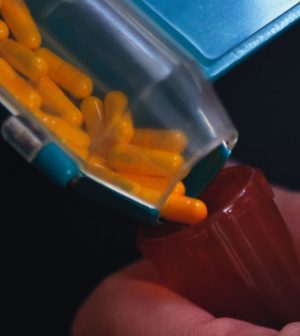- Could Your Grocery Store Meat Be Causing Recurring UTIs?
- Are You Making This Expensive Thermostat Error This Winter?
- Recognizing the Signs of Hypothyroidism
- 10 Strategies to Overcome Insomnia
- Could Artificial Sweeteners Be Aging the Brain Faster?
- Techniques for Soothing Your Nervous System
- Does the Water in Your House Smell Funny? Here’s Why
- Can a Daily Dose of Apple Cider Vinegar Actually Aid Weight Loss?
- 6 Health Beverages That Can Actually Spike Your Blood Sugar
- Treatment Options for Social Anxiety Disorder
Researchers ‘Spin’ Clinical Trial Findings in Top Psych Journals: Study

Summary results of clinical trials published in top journals are often exaggerated, a new review charges.
The review says such spin — exaggerating the clinical significance of a treatment without statistics to back it up — is common in abstracts published in leading psychology and psychiatry journals. And the authors warn it could be dangerous, because the abstracts could affect doctors’ treatment decisions.
In the review, a team led by Samuel Jellison of the Oklahoma State University Center for Health Sciences in Tulsa, looked over the abstracts of 116 clinical trials published between 2012 and 2017 in six top psychology and psychiatry journals.
An abstract is a summary of a full study. The authors said researchers may use it to highlight, or spin, certain information.
The investigators limited their analysis to abstracts in which the primary results were not statistically significant.
The researchers found evidence of spin in 56% of the abstracts, including in titles (2%), results sections (21%) and conclusion sections (49%). In 17 trials (15%), spin was found in both the results and conclusion sections of the abstract.
Spin was more common in trials that compared a particular drug/behavioral therapy with a placebo treatment or usual care, the findings showed.
Industry funding was not associated with an increased chance of spin. Only 10 of the 65 clinical trials with spin had some level of industry funding.
The study was published Aug. 5 in the journal BMJ Evidence-Based Medicine.
The researchers noted in a BMJ news release that their assessments of spin may have been subjective and that their findings may not be widely applicable to clinical trials published in all psychiatry and psychology journals.
Even so, they wrote: “Researchers have an ethical obligation to honestly and clearly report the results of their research. Adding spin to the abstract of an article may mislead physicians who are attempting to draw conclusions about a treatment for patients. Most physicians read only the article abstract the majority of the time.”
In addition, they noted, “Those who write clinical trial manuscripts know that they have a limited amount of time and space in which to capture the attention of the reader. Positive results are more likely to be published, and many manuscript authors have turned to questionable reporting practices in order to beautify their results.”
More information
The U.S. National Library of Medicine has more on clinical trials.
Source: HealthDay
Copyright © 2026 HealthDay. All rights reserved.










